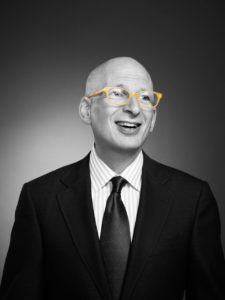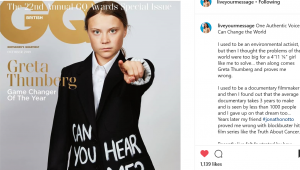This Will Not Make Me Popular with the Ultra-Left

Creator: Sam Valadi
Credit: ZUMAPRESS.com/Newscom
Copyright: via ZUMA Wire
A friend–my ex-boss, in fact–sent me this article on how 30 billionaires had vastly increased their wealth during the pandemic.
I wrote back:
While this is a good tool for generating outrage, it’s not where I will put my own energy. First, because I think one of the mistakes the Left makes is to try to divide ourselves to the super-rich and make them targets. Much more productive IMHO to work with them, make them allies, to fund necessary research and actions (as several of these people are cited as doing).
Second, to work for a tax structure that helps redistribute toward those in need. Harness the class anger toward this, rather than generating enmity toward people who we make less likely to do the right thing by shaming them and having demonstrations at their offices. Guilt and shame are lousy motivators. Let’s find ways to honor their virtue rather than shame their success.
On that second point, it would not be hard to find one-percenters who would join and be a public face for that movement. Many multimillionaires and even a few billionaires have come out for income equality, offered to pay higher taxes, donated much of their fortunes, subsidized social change movements. Do the names Warren Buffett, Bill Gates, or George Soros ring any bells?
I have a relatively modest 5-figure income, but I travel in circles where a lot of people have seven- or eight-figure annual incomes. My life is full of abundance and blessings, and I don’t begrudge them their wealth. I do begrudge those who push for corporate welfare policies that penalize the poor while adding unnecessary zeroes at the end of their own already large bank balances–people whose goal in life seems to be transferring as much wealth as possible from the poor to the super-rich. And I don’t believe those few people, powerful though they are, represent the majority of the one percent.
In fact, I believe that smart corporations recognize that labor and consumers are partners in their success who deserve to share in the wealth they help create. They embrace social responsibility, partner actively with neighborhood groups, and grow their businesses by finding ways to serve.
But there’s an element on the left that sees wealth as inherently evil, and the wealthy as always the enemy.
I remember when a philanthropist and peace activist I know lost her house in a fire. Some of the public comments on the news stories were not only not compassionate, they were downright vicious: how dare she accumulate wealth and live in a mansion?
Well, sorry, but making her the enemy is just plain stupid. She’s an activist and philanthropist who chooses to use her money for good. And even if she were totally selfish, she still wouldn’t be the enemy. Rich or poor, we all want dignity and respect. And when we pigeonhole her as an enemy, what we do is alienate not just her but others in her cohort. So non-activist wealthy people who might have funded our causes are instead pushed into the arms of those who proclaim respect for the wealthy. If their politics are not strong, they may even choose to fund causes that actively defend their privilege.
WordPress is not letting me link properly, so here are the sources:
- Billionaires who got richer during the pandemic: https://www.usatoday.com/story/money/2020/12/01/american-billionaires-that-got-richer-during-covid/43205617/
- Public face: https://www.cnbc.com/2019/12/31/what-billionaires-said-about-wealth-inequality-and-capitalism-in-2019.html
- Donated: https://www.msn.com/en-us/money/companies/warren-buffett-donates-2-9-billion-to-gates-foundation-family-charities/ar-BB16u7tr
- Income inequality: https://www.msn.com/en-us/money/companies/warren-buffett-donates-2-9-billion-to-gates-foundation-family-charities/ar-BB16u7tr
- Corporate welfare: https://www.huffpost.com/entry/ten-examples-of-welfare-for-the-rich-and-corporations_b_4589188
- Penalize the poor https://talkpoverty.org/2014/10/07/punished-for-being-poor/ . For a specific discussion of the subsidy wealtheir people get from low-paid immigrant labor, https://www.stltoday.com/opinion/mailbag/underpaid-immigrants-help-poor-subsidize-the-rich/article_2f1d8094-9700-5f8b-8d38-562fd75a7657.html
-
-
-
-
-
-
-
-
-
-
-
-
-
-
-
-
-
-
-
-
-
-
-
-
-
-
-
-
-
-
-
-
-
-
-
-
-
-
-
-
-
-
-
-
-
-
-
-
-
-
-
-
-
-
-
-
-
-
-
- Donated their fortunes: https://www.msn.com/en-us/money/companies/warren-buffett-donates-2-9-billion-to-gates-foundation-family-charities/ar-BB16u7tr
-
-
-
-
-
-
-
-
-
-
-
-
-
-
-
-
-
-
-
-
-
-
-
-
-
-
-
-
-
-
-
-
-
-
-
-
-
-
-
-
-
-
-
-
-
-
-
-
-
-
-
-
-
-
-
-
-
-
-









